My top 10 tips for getting organised to save money on your food purchases.
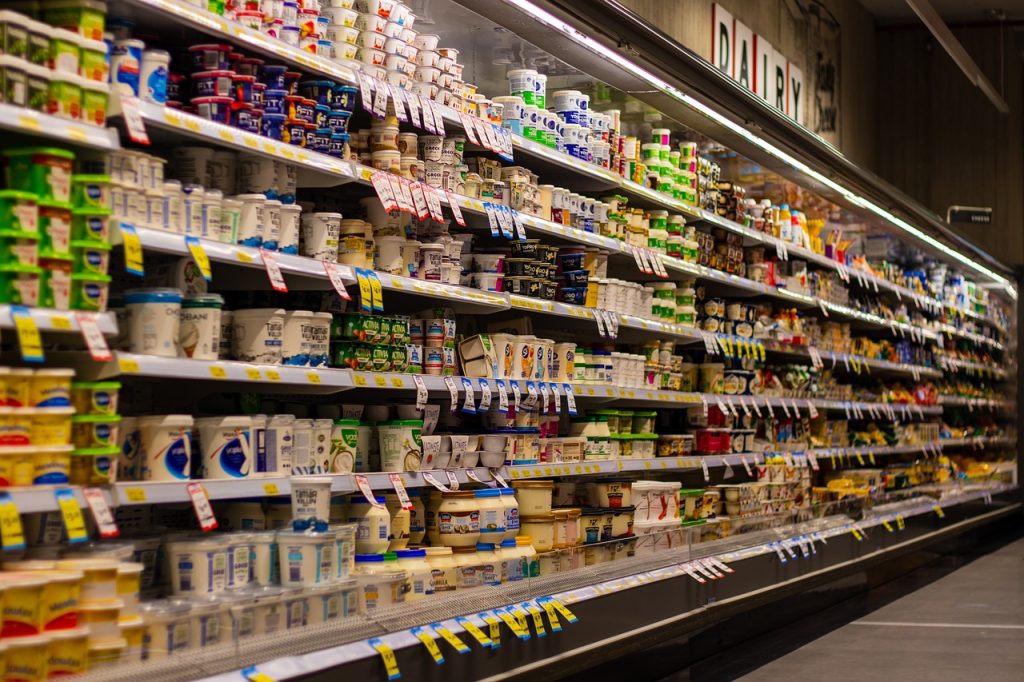
Supermarket shopping is something that almost all of us do on a weekly basis, but we are all noticing that the prices are going up across the board. Not only are the food prices on the rise, but so are energy costs, travel costs, taxes and more. So, what can we do to start saving money and make sure that we make it through this cost of living crisis in one piece?
National Organising Week 2022 will see myself, and my fellow APDO Professional Organisers, sharing how we can support you in finding new ways to start saving money.

I have gathered my top 10 tips on how to save money on food, including efficient ways to shop, what to look out for in the grocery store and what you can do at home to make the most of your shopping. Let’s jump right in!
TOP TEN TIPS TO SAVE MONEY ON FOOD
1. SET YOUR WEEKLY BUDGET
The best way to keep track of your finances is to really be clear on your budget. It is never a good idea to spend money that you don’t have. You can start by working out what basics you need in your cupboards to get by on a weekly basis. Then decide how much disposable income you have for each week to cover the costs of the baseline shopping. If you have enough to cover that and can afford a bit more for the little extras, then set an overall budget that works in line with your other outgoings.
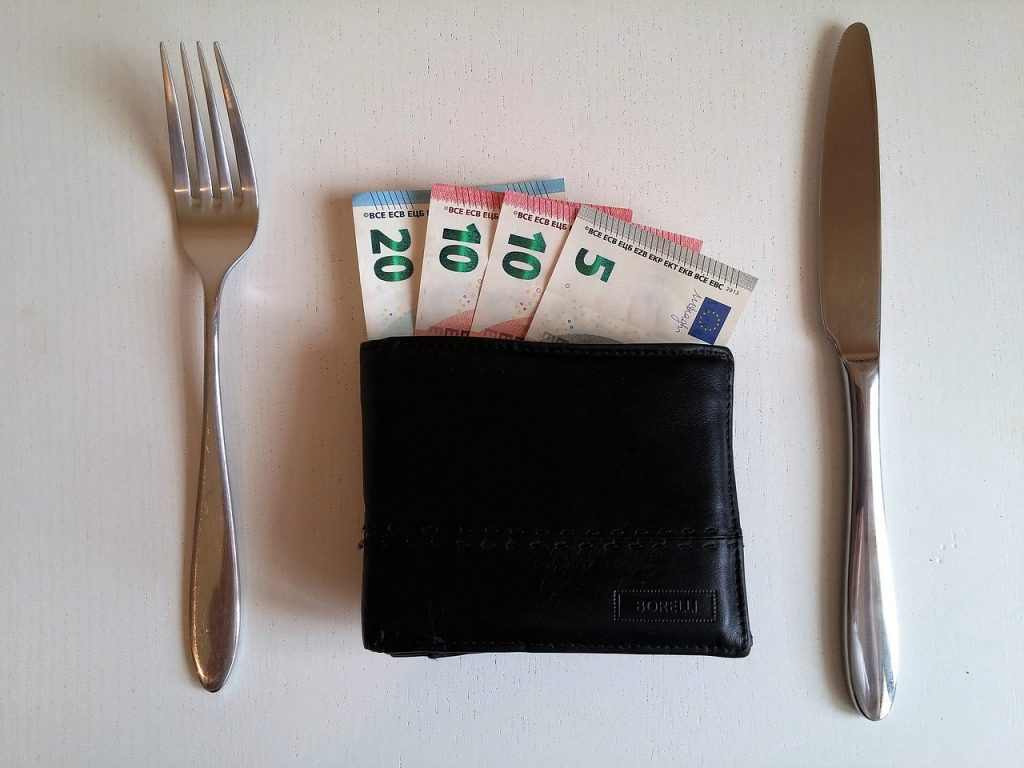
DO NOT GO OVER YOUR BUDGET!
It is worth doing a price check for different supermarkets to work out which one will give you the best value for money and therefore maximising what you get for your defined budget. Check out Trolley for price comparison options.
2. MEAL PLANNING
For me, meal planning is the foundation of keeping costs down at the supermarket. I can happily wander around a supermarket for hours on end, finding a reason for why I need almost anything or coming up with a list of recipes that I promise myself I am going to try (and of course never do!).

By meal planning in advance, and shopping according to this plan, I have very little reason to let anything else creep into the trolley! You might consider going one step further and using a service such as Gousto to plan your meals.
We are big fans of Gousto in our house! Every week we sit down and go through the recipe options and decide what we would like to have for the week ahead. We select the recipes and like magic, on a Sunday, the box appears ready for the start of the week.
Gone are the days of trying rustle something together last minute or rushing to the shop to find anything that the kids will eat, or even worse, adding another takeaway to the menu. There is very little effort involved, the recipes are simple to follow and always taste great.
Furthermore, in a family of five, the amount of waste from leftovers or food going out of date has been reduced significantly! Even better, it means all I need to get on my weekly shop is school snacks, drinks and the odd lunch here and there.
“Which Gousto are we having tonight Mummy?” (Everyone loves it!)
3. MAKE A LIST
Like meal planning, making a list is key to not overspending at the supermarket. Once you have made your meal plan for the week, make a list of everything that you need for each meal. Double check what inventory you already have in your cupboard so that you aren’t buying doubles. If you are a bulk buyer, I recommend having a backstock box where you keep your spares. Add an inventory list to the top of the box so that you can always see at a glance if you already have an item before replacing it.

Want to go one step further? Take a picture of your inventory so that you have it on your phone when you are shopping in case you forget to check before you leave the house. The key to being organised being prepared!
3. DON’T SHOP WHEN YOU ARE HUNGRY
I will repeat… DO NOT SHOP WHEN YOU ARE HUNGRY!

I am sure that anyone reading this will have experienced the hunger dilemma when you have been running around all day and end up dashing into the supermarket when you haven’t eaten, and you are starving.
Suddenly, you want to eat everything in sight!
This is one of the biggest money spending traps out there! So, make sure to plan when you are shopping in advance and make sure that you have been fed and watered before even setting foot in that store! Remember supermarket layouts are designed to guide the customer around the shop so that they see everything, and then are more likely to want to add unnecessary items. Don’t be sucked in!
It’s also worth noting that this goes for online shopping as well. If you are clicking away pre-dinner time and your tummy is rumbling, you are more likely to be click happy and end up with a whole load of things that you don’t need in that basket. Take five and have a snack, check your list and carry on.
4. MAKE THE MOST OF LOYALTY CARDS AND DISCOUNT COUPONS
These days most big chains offer a loyalty or reward card where you can collect points which can be put towards future purchases.

It can be overwhelming with an increased number of emails in your inbox but the savings you can make will be worth it.
It’s also a good idea to keep an eye out for offers and special discount days or bonus point days that may save you even more. (If you have a Nectar card, look out for their double up days in the lead up to Christmas!)
I have been guilty of forgetting my reward cards at home and then missing out on getting the extra points. One way I have found to avoid that happening is to download the store app and make sure it is linked to your card. This allows you to scan your card from your phone whenever you are out. Check out this handy guide from WHICH.
5. KNOW WHEN YOUR SHOP REDUCES THEIR PRICES
Are you familiar with the end of aisle section that houses all the yellow sticker items? Most big supermarkets have this section where food items that are near their use by date get reduced. It is always worth checking this section to grab a bargain. Even better – get to know your local stores and what time of day they start to discount items. Martin Lewis, our nation’s well loved Money Saving Expert, breaks it down here.
It’s also worth checking if your local area has a community fridge/pantry. We are luck to have one locally where supermarkets and business donate their end of line food items that members of the community can then pick up for free!
For my local readers, you can find out more about our Strathaven Community Fridge from the Climate Action Strathaven Blog.
6. GO FOR THE FROZEN OPTION
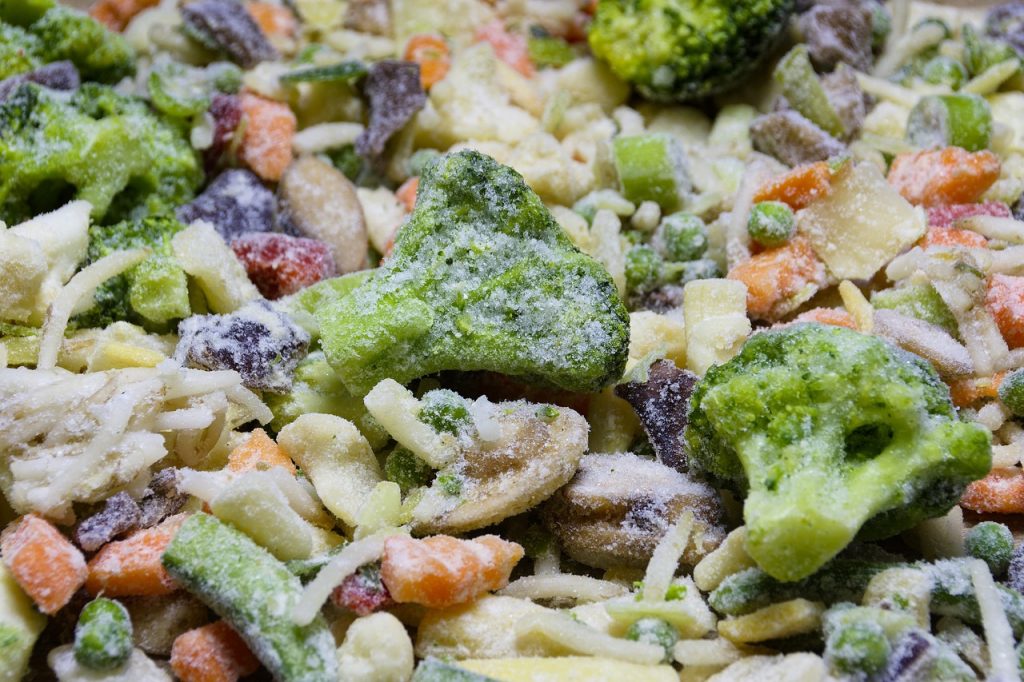
People often think that eating fresh fruit and veg is better for you, but the truth is that certain items when frozen quickly hold the nutrients better. Eatingwell.com revealed that a ‘2017 study found that there were no significant differences in vitamin content between frozen and fresh vegetables. Furthermore, when there was a slight difference, it was more likely that the frozen vegetables had a higher concentration of nutrients than their fresh counterparts.’
Check out the frozen section for good deals. Not only is this a healthy and cheaper option, but you are also less likely to waste items that risk going out of date because you haven’t used them.
7. BATCH COOK AND FREEZE
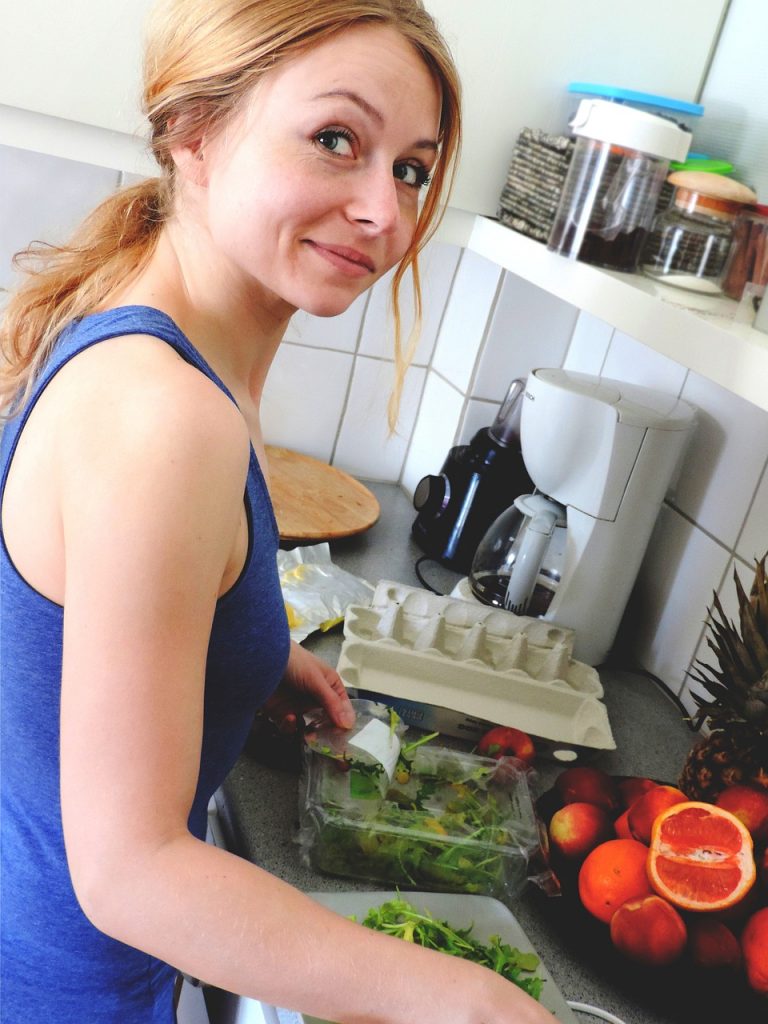
There is no denying that life is busy for most of us which means finding the time and energy to cook a heathy meal can be difficult. One way to make sure you are eating well, as well as making the most of your shopping, is to batch cook meals and freeze them.
This is also a great way to avoid decision paralysis (the total inability to decide), which often results in phoning for a takeaway or zapping that ready meal in the microwave. By having back up home cooked ready meals in your freezer, you will never be caught out by those just can’t be bothered to cook moments.
Check out the BBC Good Food site for some great recipes, perfect for batch cooking and freezing. This is one of my go-to sites for recipes!
8. KEEP YOUR CUPBOARDS ORGANISED
I wouldn’t be a very good Professional Organiser if I didn’t throw in some organising tips into everything I do. I can’t quite help it!
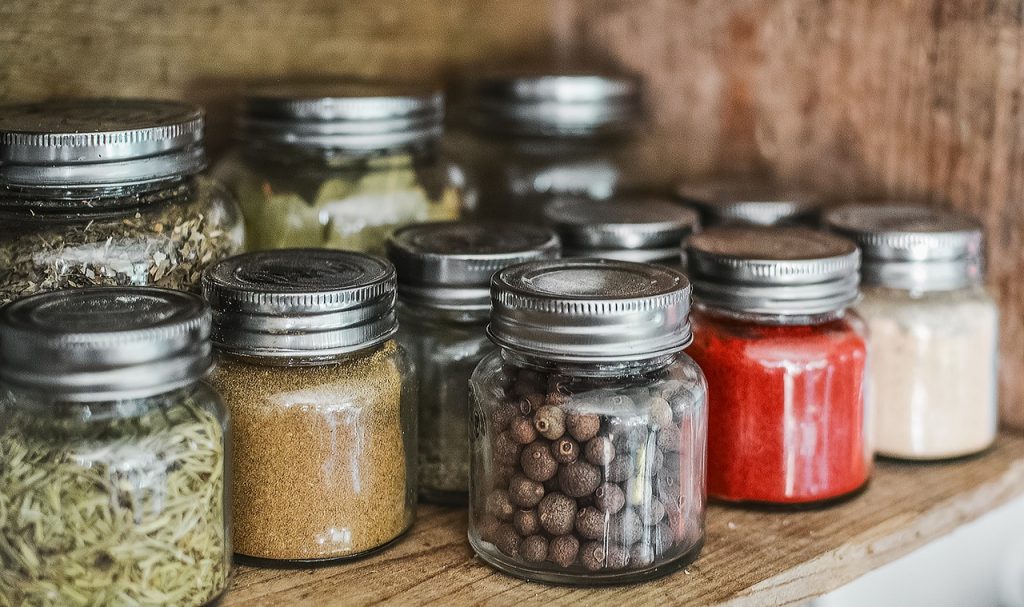
But yes, making sure your kitchen and pantry cupboards are organised will, believe it or not, help you to save money on food!
I had the delight of working on kitchen/pantry spaces this last week (one of my favourite zones to work on!), and while my clients didn’t think it was likely there would be many items that were out of date, there were still enough to make a difference to the space being used.
There is a reason people use the saying ‘out of sight, out of mind’, and this is particularly applicable when it comes to kitchen cupboards. Overflowing cupboards leads to hidden items. When we can’t see what we are storing, we won’t know to look for it when we need to use it. This will result in buying a replacement. Unsurprisingly, items that are hiding away at the back of the cupboard are most likely to go out of date, wasting the money that you spent on them as well as wasting perfectly useable items. As a result, getting organised WILL save you money!
9. STOCK TAKE
With organised cupboards, you may feel totally in control of your food items, but could you go one step further? Supermarkets will take a daily stock take to know what items they are running low on and what needs to be replaced.
How about if you did the same?
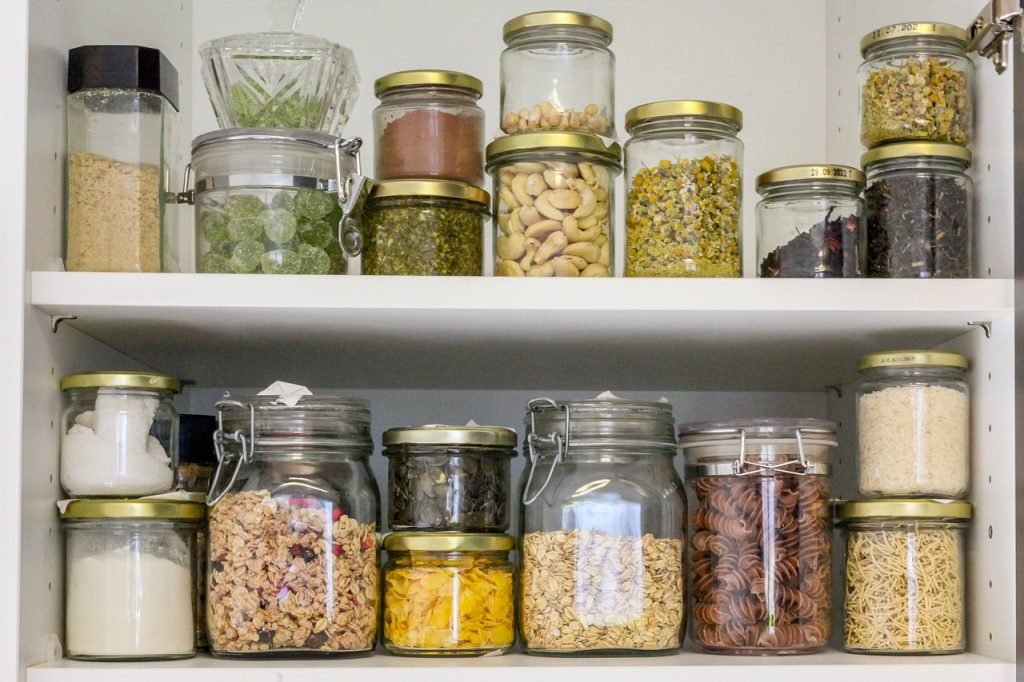
I’m not suggesting you do a daily stock take, that’s maybe a bit OTT, even for a Professional Organiser, but you could set a reminder maybe once a month for your own stock take session. Set aside 30-60 mins to go through the contents of your cupboards, noting down what you have plenty of and what items need to be replaced. By knowing what you have you may just spark that interest in cooking and banish the stress of not being in control.
10. GET CREATIVE

We live in a world where we can access amazing ideas for cooking on a budget at the click of a button. Do a little Google search or check out your social media pages for some recipe ideas, follow people on Instagram, Pinterest, Facebook or YouTube and get creative with how you can save money when it comes to food. Pop over here to see the Batch Lady for some ideas!
Have fun!
Now, there are definitely many more ways that you can save money on food, but I hope these will at least set a good foundation from which you can build on. Although certain foods aren’t a luxury that we can live without, well, we kind of need food to survive, there are certainly lots of ways that we can be smarter about our purchases and keep our food bills down.
Every little counts right?
Do you have any good tips for saving on your food bills? I’d love to hear them! Comment below to let me know what works for you and what could work for someone else as well!



